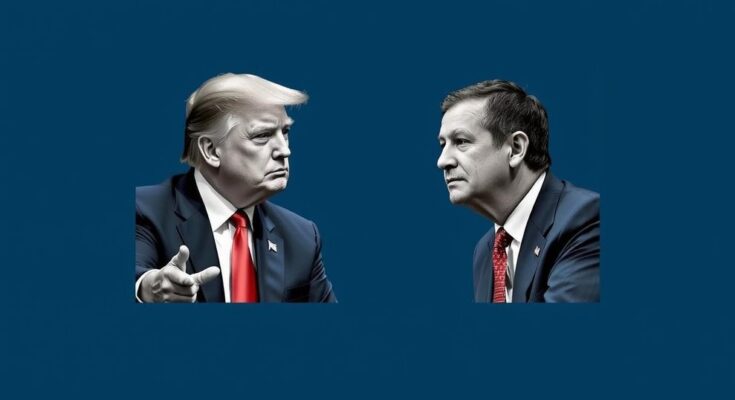Donald Trump’s nomination of Robert F. Kennedy Jr. as Secretary of Health and Human Services has sparked intense controversy due to Kennedy’s skepticism towards vaccines and health regulations. As a prominent figure known for his environmental advocacy and anti-vaccine stance, his appointment raises concerns about the impact on public health policy, prompting mixed reactions among lawmakers and the public alike.
The nomination of Robert F. Kennedy Jr. as the U.S. Secretary of Health and Human Services has ignited a firestorm of controversy, given his well-documented skepticism toward vaccines and other health measures. Announced via Donald Trump’s social media platform, Kennedy’s selection aligns with Trump’s previous praise for him as a champion of health and environmental issues. With Kennedy at the helm of the key health agency, concerns are rising about the potential impact on public health policy. Robert F. Kennedy Jr., the scion of the Kennedy political dynasty, is not merely a name; he is a figure who embodies both heritage and controversy. The 70-year-old environmental lawyer has taken public stances against vaccines and fluoride in drinking water, raising alarms among both Democrats and some Republicans. Despite his claims that he does not advocate for anti-vaccine sentiments, his history of promoting debunked theories—such as the discredited connection between vaccines and autism—paints a precarious picture of his appointment. Kennedy serves as the chair of Children’s Health Defense, an organization that has fueled anti-vaccine narratives. While advocating for healthier lifestyles and challenging corporate influence over public health, his remarks against the CDC’s endorsements regarding fluoride—calling it an industrial waste linked to health concerns—have stirred discussions on its appropriateness in public water supplies. His controversial proposals reflect a broader skepticism towards health authorities and practices. In terms of how Kennedy perceives health governance, he has relentlessly critiqued the FDA, suggesting it is compromised by corporate interests. His aggressive posturing, urging FDA employees to maintain records, suggests an impending wave of reform—or discord within public health infrastructure. Additionally, his dismissal of COVID-19 restrictions and proliferation of unsupported cures add layers of concern about his potential policies and decision-making processes. The responses to his nomination have been mixed. Prominent Republican senators have voiced support, praising his truth-telling stance. However, others, alongside Democrats, have raised red flags, warning that his anti-vaccine views jeopardize public health safety. As concerns mount surrounding FDA and COVID-19 policies under his leadership, the general public echoes a sense of disbelief—can a skeptic of fundamental health practices genuinely lead the nation towards a healthier future?
The nomination of Robert F. Kennedy Jr. as Secretary of Health and Human Services by Donald Trump signals a significant shift in the political landscape concerning health policy in the U.S. Kennedy’s controversial background has made him a polarizing figure, particularly due to his well-publicized skepticism about vaccines, which he associates with various health issues. His stance on fluoride in water and critiques of the FDA further contribute to the apprehension surrounding his appointment. As the head of HHS, Kennedy would oversee vital agencies such as the FDA and CDC, warranting discussions about the implications of his leadership on public health safety and regulations.
The choice of Robert F. Kennedy Jr. as the prospective Secretary of Health and Human Services is emblematic of broader ideological divides in American politics today. His history of vaccine skepticism and criticisms of federal health agencies raise critical questions about the future direction of public health policy under Trump’s administration. With strong reactions from both allies and opponents, the appointment highlights the precarious balance between health governance and personal beliefs, leaving many to ponder the potential repercussions for the nation’s health policies.
Original Source: www.aljazeera.com



